|
Can virtual characters improvise open-ended, physically-embodied, interactions with people in real-time using objects within their environment? Find out on the main stage of the Robot Improv Circus, where you can play the Props game with your robot partner. Dazzle the robot audience and mime hilarious actions by pretending that each abstract mystery prop is a recognizable, real-world object. This research project investigates real-time decision-making in open-ended (very large) decision-spaces without a single clear goal using knowledge learned from observing and interacting with people. 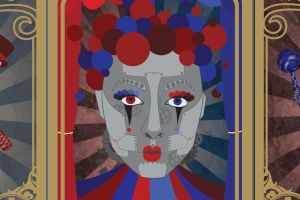 |
Social movement organizing is becoming increasingly dependent on communication technologies. How can CSCW systems support grassroots organizations in facilitating collective action through democratic participation? In this project, we studied Science for the People-Atlanta, a social movement organization dedicated to building a grassroots movement around science activism. We used action research, both participating in the organization and studying it. Further, we interviewed ten active members of the organization. |
The Shape of Story is an interactive story circle experience in which participants collectively create a story line-by-line. Artificial intelligence in narrative understanding is used in conjunction with a symbolic visual language in order to visualize this story in real-time. The result is a communally created narrative art piece. 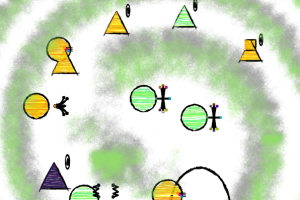 |
|
|
An augmented reality fraction learning experience with storytelling and tangible artifacts. 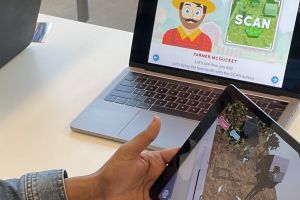 Website: |
This project is a narrative video game exploring what are the effective emotional agencies, an experiment on combining traditional Chinese philosophy and contemporary one together, and a biography of my grandmother conveying the unforgettable piece of the history of the new China. In this game, which is the first episode, interactors need to play a role of my grandma in her childhood. They need to collect food, get along with people, and manage their mental health to survive in the cruel world. |
A video game adaptation of the Haruki Murakami story built in Unreal Engine. 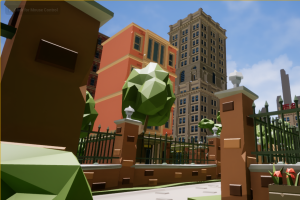 |
This MS project applies approaches from DIY and maker culture to lifelong learning principles. It aims to introduce practical workshop settings and guidelines for the use of rapid prototyping technology to continuous education of senior citizens. 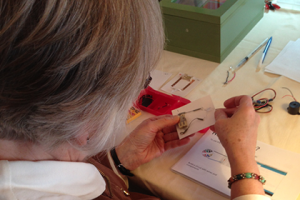 |
|
Using patient-generated, patient-volunteered social media data to predict relapse episodes in schizophrenia to support clinical psychiatric interventions. |
Tiamat Media is an ARG that was specifically designed for Dragon Con 2013, the largest multimedia fan conventions in the country. It was designed to fit within the socio-cultural context of the convention, appropriating established convention actions into the design. Our narrative revolved around the fictional company we created called Tiamat Media. Tiamat Media is a publishing company that specializes in publishing fan artwork. It operates under the guise of helping fans spread their artwork and encouraging fan empowerment. 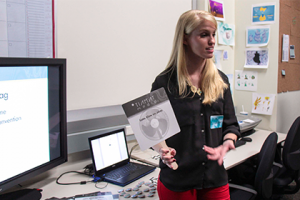 |
We are creating platforms that help people solve small-scale problems in their everyday lives. Here, gratification comes not from making something new and remarkable to show off to the world, but in making something unremarkable that nevertheless feels important to an individual or small community. When to water a particular plant, when hot coffee has reached a preferred temperature, when the mail has been delivered, and so on. We aim for an ecosystem that reduces hardware engineering complexity for small-scale, ubiquitous problems like these. 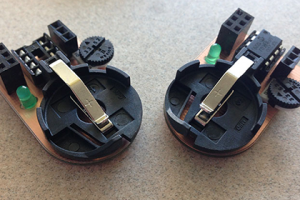 |
|
|
Using machine learning to help scholars find new research sources 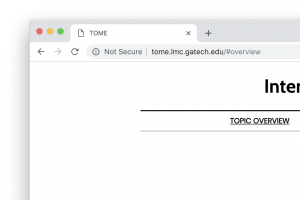 Website: |
Students with disabilities face a number of challenges in today's educational system. Despite being guaranteed a fair and equitable education under the IDEA (1975), we find that students with disabilities graduate high school at a rate of 63%, 20% lower than their peers (2014). The state of Georgia was among five others that graduated students with disabilities at a rate of less than 50% compared to their peers. 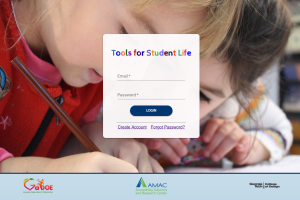 |
We analyze challenges in using CSCW technologies for practicing grassroots politics and offer suggestions on how to address them through creating a localized culture of technology practice |


